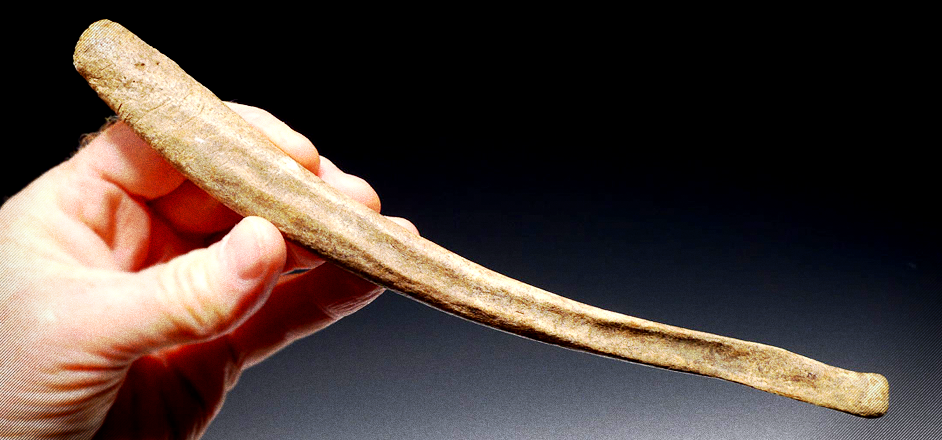We call them boners because in most mammals, that's exactly what they are: bones.
Bones in the penis.
Chimps have them. They're our closest living ancestor. Their penis bones are about a half-inch long.
Whales have them too. They're a little bigger, though.
And humans? Humans used to have them. According to a recent study by the Proceedings of the Royal Academy, a few million years ago, our hominid ancestors were equipped with rip-roaring weiners that were hulked-up by a bony core. Not only did the bone make their penises stronger and more imposing; it made them able to fuck for longer.
That was very important for the proliferation of our little species. The longer and more effective the intercourse, the more likely accurate seminal deposit was ensured. That, in fact, is the whole point of a penis bone at all — a more rigid penis means more penetrative accuracy. It also means the man animal can stay inside the lady animal for a longer time. Grog like.
But then, 1.9 million years ago, something strange happened; something that would separate our species from other mammals for millennia to come.
People started falling in love. Grog and Grogga, who once enjoyed the hedonism of primordial polyamory, decided they only wanted to fuck each other. Well, mostly.
Monogamous connects began to form.
People started to pair off. For life.
And men's penises? They started to change.
The penis bones began to shrink … and shrink … and then — they disappeared entirely. Things got real floppy in there.
Why?
Evolutionary biologists think the advent of monogamous love is to blame. Once people started settling down, there was less of a need for competitive boners reinforced by brittle skeleton. Instead of robust penises, men and women relied on emotional intimacy, safety and comfort to ensure productive intercourse.
"There's a clear [relationship] between the bone's length and a species' promiscuity: more promiscuous species had longer bacula [penis bone]," the study's researchers told The Economist.
The study also reported a clear connection between a penis bone and mammals that only have sex to make babies. Animals that make it for their own pleasure have smaller penis bones, or none at all.
One of the side effects of this was that with the disappearance of the penis bone, intercourse also became shorter. It had to be. A (relatively) flaccid dick is a dick that doesn't stay in, so it's in humanity's best interest to come as soon as possible — the longer you sit there trying to jam a limp cock into something, the more vulnerable you are to Sabertooth tigers and the like.
"We defined prolonged intromission as that which continued for longer than three minutes," the study's co-author Matilda Brindle told Seeker. "Short intromission was that which continued for less than three minutes. When all cultural aspects of sex are stripped away and a male's aim is solely to ejaculate, human intromission is classified as short."
Sigh. Too bad Tinder's age cutoff is 99 … we could really use a 991,938-year-old on these cold winter nights …




Leave a Reply